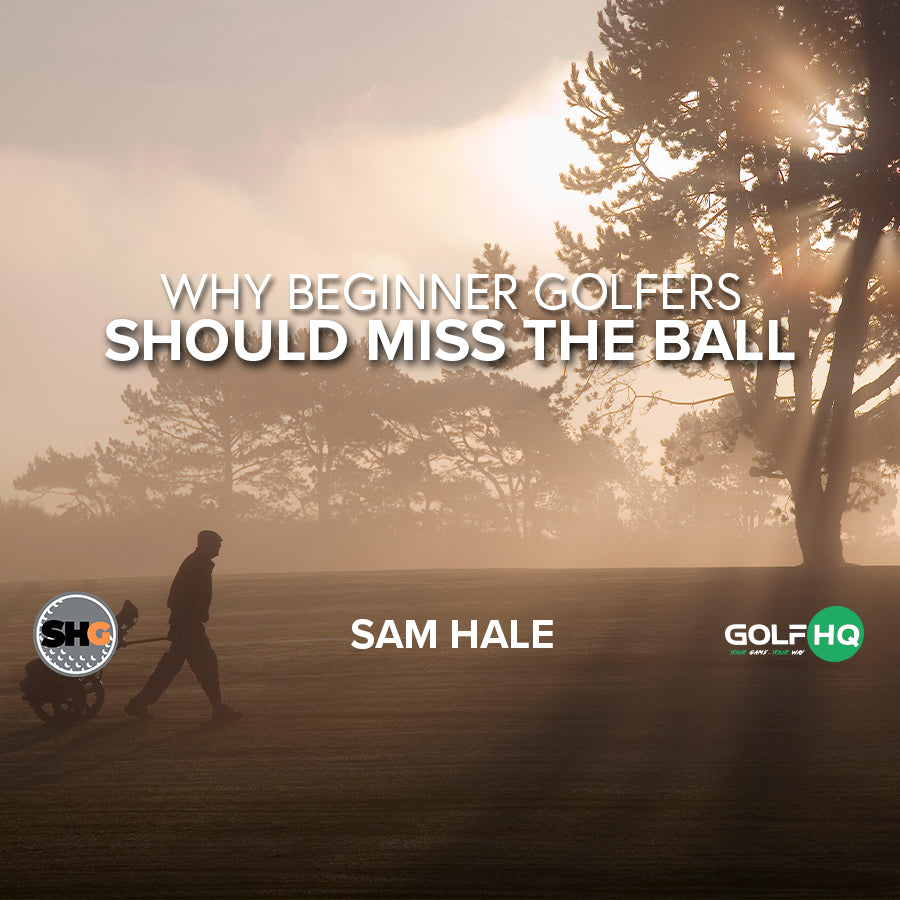Many coaches and I agree that a beginner's priority should be to consistently make contact with the golf ball before taking on more advanced goals. Although undeniably true, there exists an irony in how this goal is often pursued. In trying hard to hit the ball every time, compensations are often unknowingly recruited to meet the goal, leading to a lesser strike rate over time.
Looking at a golf ball with a golf club in hand is more than enough conscious attention to hitting the ball; after all, nobody is trying to miss. Its hyper-focusing on hitting the ball invites compensation. Your Super Power as a beginner is that you have no performance expectations, a perfect opportunity to do something as unintuitive as not caring if you hit the ball or not.
Proprioception is the link between a coordinated, smooth golf swing and a good connection with the golf ball; without the link, it is often one or the other. Proprioception is like your sixth sense. It helps you interact with things outside your body; it acts like a radar directed at the general area learning first where the target is not and then where it is.
Some of your best-feeling coordinated golf swings may happen without hitting the ball. If you wait for your unconscious radar to lock in, you may be just a few swings away from the best shots you have ever hit. Facilitating this process means not freaking out or hyper-focusing on the ball, as doing so would only rob you of an opportunity to develop your proprioception and avoid compensation. This practice is excellent for all levels but is particularly handy for beginners looking for a rewarding introduction to the game. The tricky part is allowing yourself to feel utterly helpless and terrible for a few shots; good luck out there.
Why Beginner Golfers Should Miss The Ball
Golf HQ



